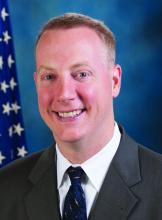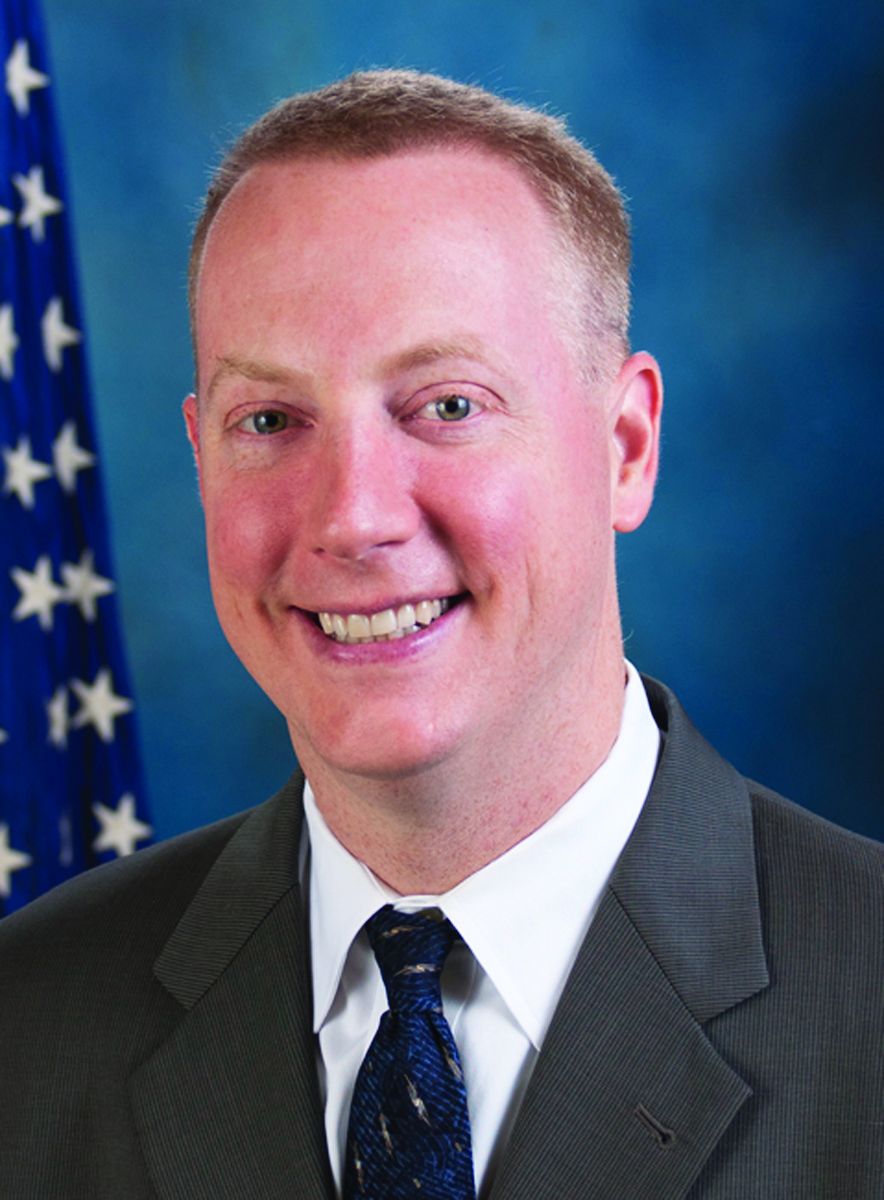User login
Patrick Conway, MD, MSc, MHM, may have had a lot of job titles recently, but his work address hasn’t changed in 6 years.
Dr. Conway, deputy administrator for innovation and quality for the Centers for Medicare & Medicaid Services and director of its Center for Medicare and Medicaid Innovation, has been at the intersection of policy and practice in Washington, since joining CMS in 2011. The still-practicing hospitalist was acting CMS administrator for several months earlier this year, holding the top post while President Donald Trump’s nominee to lead the agency, Seema Verma, awaited U.S. Senate confirmation. His title before that was principal deputy administrator and CMS chief medical officer.
Dr. Conway said he believes that at a “macro legislation” level, Washington is committed to health care reform that improves patient care and incentivizes physicians to join alternative payment models (APMs). He said hospitalists should be encouraged by how well the field has already adapted to the proliferation of accountable-care organizations, value-based purchasing, and the Medicare Access and CHIP Reauthorization Act of 2015, or MACRA. He said that as innovations lead to better patient care and more coordinated care, that’s good for hospitalists, patients, and the hospitals that bring them together.
“I want to leave people with the idea that value-based payment innovation and delivery system reform will continue to be critical aspects of improving our health system,” he said. “I also want hospitalists to continue to stay engaged in these new payment models and help lead them and provide better patient care as part of them.”
Dr. Conway said that focusing on innovations is essential to hospitalists to ensure the specialty remains at the forefront of improved patient care, decreased readmissions, decreased infections and other quality improvements. He notes that by still practicing on an academic medical service with faculty, residents and medical students, he’s encouraged and excited that “people get it.”
“Every doctor wants better care for their patients,” Dr. Conway said. “The reality of … new payment systems and new fields of innovation we’re entering into is it unleashes hospitalists and aligns incentives with what they want for their patients.”
Take bundled payments around episodic care. With innovations in payment models, hospitalists are increasingly being paid for how good their care is, not how much care there is.
“That’s exciting,” Dr. Conway said. “Very different than 10 years ago where you had a lot of groups where it was about how much volume can we churn through. Now I think hospitals and HM groups [realize] value is going to continue to increasingly be based on the quality of care and the efficiency of care delivery.”
Patrick Conway, MD, MSc, MHM, may have had a lot of job titles recently, but his work address hasn’t changed in 6 years.
Dr. Conway, deputy administrator for innovation and quality for the Centers for Medicare & Medicaid Services and director of its Center for Medicare and Medicaid Innovation, has been at the intersection of policy and practice in Washington, since joining CMS in 2011. The still-practicing hospitalist was acting CMS administrator for several months earlier this year, holding the top post while President Donald Trump’s nominee to lead the agency, Seema Verma, awaited U.S. Senate confirmation. His title before that was principal deputy administrator and CMS chief medical officer.
Dr. Conway said he believes that at a “macro legislation” level, Washington is committed to health care reform that improves patient care and incentivizes physicians to join alternative payment models (APMs). He said hospitalists should be encouraged by how well the field has already adapted to the proliferation of accountable-care organizations, value-based purchasing, and the Medicare Access and CHIP Reauthorization Act of 2015, or MACRA. He said that as innovations lead to better patient care and more coordinated care, that’s good for hospitalists, patients, and the hospitals that bring them together.
“I want to leave people with the idea that value-based payment innovation and delivery system reform will continue to be critical aspects of improving our health system,” he said. “I also want hospitalists to continue to stay engaged in these new payment models and help lead them and provide better patient care as part of them.”
Dr. Conway said that focusing on innovations is essential to hospitalists to ensure the specialty remains at the forefront of improved patient care, decreased readmissions, decreased infections and other quality improvements. He notes that by still practicing on an academic medical service with faculty, residents and medical students, he’s encouraged and excited that “people get it.”
“Every doctor wants better care for their patients,” Dr. Conway said. “The reality of … new payment systems and new fields of innovation we’re entering into is it unleashes hospitalists and aligns incentives with what they want for their patients.”
Take bundled payments around episodic care. With innovations in payment models, hospitalists are increasingly being paid for how good their care is, not how much care there is.
“That’s exciting,” Dr. Conway said. “Very different than 10 years ago where you had a lot of groups where it was about how much volume can we churn through. Now I think hospitals and HM groups [realize] value is going to continue to increasingly be based on the quality of care and the efficiency of care delivery.”
Patrick Conway, MD, MSc, MHM, may have had a lot of job titles recently, but his work address hasn’t changed in 6 years.
Dr. Conway, deputy administrator for innovation and quality for the Centers for Medicare & Medicaid Services and director of its Center for Medicare and Medicaid Innovation, has been at the intersection of policy and practice in Washington, since joining CMS in 2011. The still-practicing hospitalist was acting CMS administrator for several months earlier this year, holding the top post while President Donald Trump’s nominee to lead the agency, Seema Verma, awaited U.S. Senate confirmation. His title before that was principal deputy administrator and CMS chief medical officer.
Dr. Conway said he believes that at a “macro legislation” level, Washington is committed to health care reform that improves patient care and incentivizes physicians to join alternative payment models (APMs). He said hospitalists should be encouraged by how well the field has already adapted to the proliferation of accountable-care organizations, value-based purchasing, and the Medicare Access and CHIP Reauthorization Act of 2015, or MACRA. He said that as innovations lead to better patient care and more coordinated care, that’s good for hospitalists, patients, and the hospitals that bring them together.
“I want to leave people with the idea that value-based payment innovation and delivery system reform will continue to be critical aspects of improving our health system,” he said. “I also want hospitalists to continue to stay engaged in these new payment models and help lead them and provide better patient care as part of them.”
Dr. Conway said that focusing on innovations is essential to hospitalists to ensure the specialty remains at the forefront of improved patient care, decreased readmissions, decreased infections and other quality improvements. He notes that by still practicing on an academic medical service with faculty, residents and medical students, he’s encouraged and excited that “people get it.”
“Every doctor wants better care for their patients,” Dr. Conway said. “The reality of … new payment systems and new fields of innovation we’re entering into is it unleashes hospitalists and aligns incentives with what they want for their patients.”
Take bundled payments around episodic care. With innovations in payment models, hospitalists are increasingly being paid for how good their care is, not how much care there is.
“That’s exciting,” Dr. Conway said. “Very different than 10 years ago where you had a lot of groups where it was about how much volume can we churn through. Now I think hospitals and HM groups [realize] value is going to continue to increasingly be based on the quality of care and the efficiency of care delivery.”

